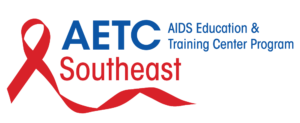
Routine Opt-Out HIV Testing In Health Care Settings Now Standard
By: University of Miami Expanded Testing Initiative
South Florida, Southeast AETC
Did you know that Florida law no longer requires written informed consent for HIV testing in health care settings? In July 2015, the Florida HIV testing law was amended (section 381.004, Florida Statutes) to allow opt-out testing. These changes apply to health care settings such as hospitals, urgent care clinics, substance abuse treatment clinics, primary care settings, community clinics, blood banks, mobile medical clinics, and correctional health care facilities. The Centers for Disease Control and Prevention (CDC) estimates that approximately 15 percent of people living with HIV are unaware of their status leading to missed opportunities for treatment to delay the progression of
How does the new Florida statute change testing procedures?
The statute makes testing in health care settings much easier by removing requirements for signed consent for HIV testing and allowing opt-out testing. Prevention counseling is also not required before HIV testing in health care settings. Patients must be notified that HIV testing is planned and have the opportunity to opt-out of testing. This notification may occur in a number of ways including verbally or by
Who should be tested for HIV?
CDC recommends that everyone between the ages of 13 and 64
HIV testing may also be reimbursable through a patient’s medical insurance. Under the Affordable Care Act (ACA), Medicare, Medicaid, and private insurance are either required or incentivized to cover “A” and “B” grade services. HIV screening has an “A” rating from the U.S. Preventive Services Task Force and should be a covered service by Medicare, Medicaid, and ACA-qualified health plans. Although most HIV testing services will be covered, it is important to refer to each individual health plan to verify reimbursement coverage.
It is important to remember that although there is no cure, HIV is a manageable infection. Current medicines are extremely effective and help people live
What should be done if the HIV test is positive?
Reassurance and support are essential. Linkage to HIV care and treatment should occur as soon as possible. Options for linkage include community HIV specialists, community-based organizations offering
What should be done if the HIV test is negative?
After informing the patient of the test result, recommendations for future testing should be discussed. One-time screening is appropriate for those with no ongoing risk for infection. Repeat screening annually, or more frequently, may be considered for those at continued risk for HIV. Patients who have ongoing substantial risk for HIV, including sexual partners of people living with HIV, those with recent sexually transmitted infections, or with multiple sexual partners and inconsistent condom use, may benefit from information about available HIV prevention strategies. These including pre-exposure prophylaxis (PrEP) and post-exposure prophylaxis (PEP). PrEP is an HIV prevention method in which a daily antiretroviral medication, taken by people who are HIV negative, can reduce the risk of HIV infection by more than 90 percent. PEP can be used to treat HIV-negative individuals who have had a single high-risk HIV exposure event. PEP medications must be started as soon as possible to be effective and always within 72 hours of
Health care providers are encouraged to start implementing opt-out routine HIV testing within their practices. Ensuring that HIV testing becomes a routine part of care is essential to increasing awareness of HIV status and reducing new infections.
The Expanded Testing Initiative (ETI) is a program designed to increase information and provide resources to Florida providers regarding HIV testing. For more information regarding the ETI program and for testing resources for your practice, please contact the ETI program at 305-243-3458.
References:
- Centers for Disease Control and Prevention. HIV/AIDS Basic Statistics. https://www.cdc.gov/hiv/basics/statistics.html. Updated December 4, 2017. Accessed December 5, 2017.
- Centers for Disease Control and Prevention. Revised recommendations for HIV testing of adults, adolescents, and pregnant women in health-care settings. MMWR. September 2006;55(RR-14);1-17. https://www.cdc.gov/mmwr/preview/mmwrhtml/rr5514a1.htm. Accessed February 27, 2017.
- U.S. Preventive Services Task Force. Screening for HIV- Current Recommendations. https://www.uspreventiveservicestaskforce.org/Page/Name/uspstf-a-and-b-recommendations/. Accessed February 27, 2017.
University of South Florida. A Provider’s Guide to Reimbursement and sustainability for HIV Testing in Florida healthcare facilities.2015 http://usfcenter.org/prevention/wp-content/uploads/2015/10/HIVTestingSustainabilityGuide.pdf. Accessed February 27, 2017.- World Health Organization.
Dr Gottfried Hirnschall. Striving for zero discrimination in health care. March 2016. http://www.who.int/mediacentre/commentaries/zero-discrimination-day/en/. Accessed February 27, 2017. - 2-1-1 Big Bend. Florida HIV/AIDS Hotline. http://www.211bigbend.org/flhivaidshotline. Accessed March 8, 2017.
- Health Resources and Services Administration. Get HIV Care and Treatment. https://hab.hrsa.gov/get-care/get-hiv-care. Reviewed October 2016. Accessed March 8, 2017.
- Florida Department of Health. AIDS Prevention. http://www.floridahealth.gov/%5C/diseases-and-conditions/aids/prevention/index.html. Accessed March 8, 2017.
- Florida Department of Health. PrEP Plan of Action Toolkit. http://escambia.floridahealth.gov/programs-and-services/clinical-and-nutrition-services/community-clinical-health/hiv-aids/_documents/prep-toolkitfinal-03-29-16.pdf. Updated March 2016. Accessed March 8, 2017.
- Florida Department of Health. Testing and Counseling. http://www.floridahealth.gov/diseases-and-conditions/aids/prevention/testing-counseling.html. Accessed March 8, 2017.
- Health Resources and Services Administration. Test and Treat: A New Paradigm for Slowing the Spread of HIV. https://hab.hrsa.gov/sites/default/files/hab/Publications/careactionnewsletter/hab_test_and_treat_january_careaction_pdf.pdf. Accessed March 8, 2017.
